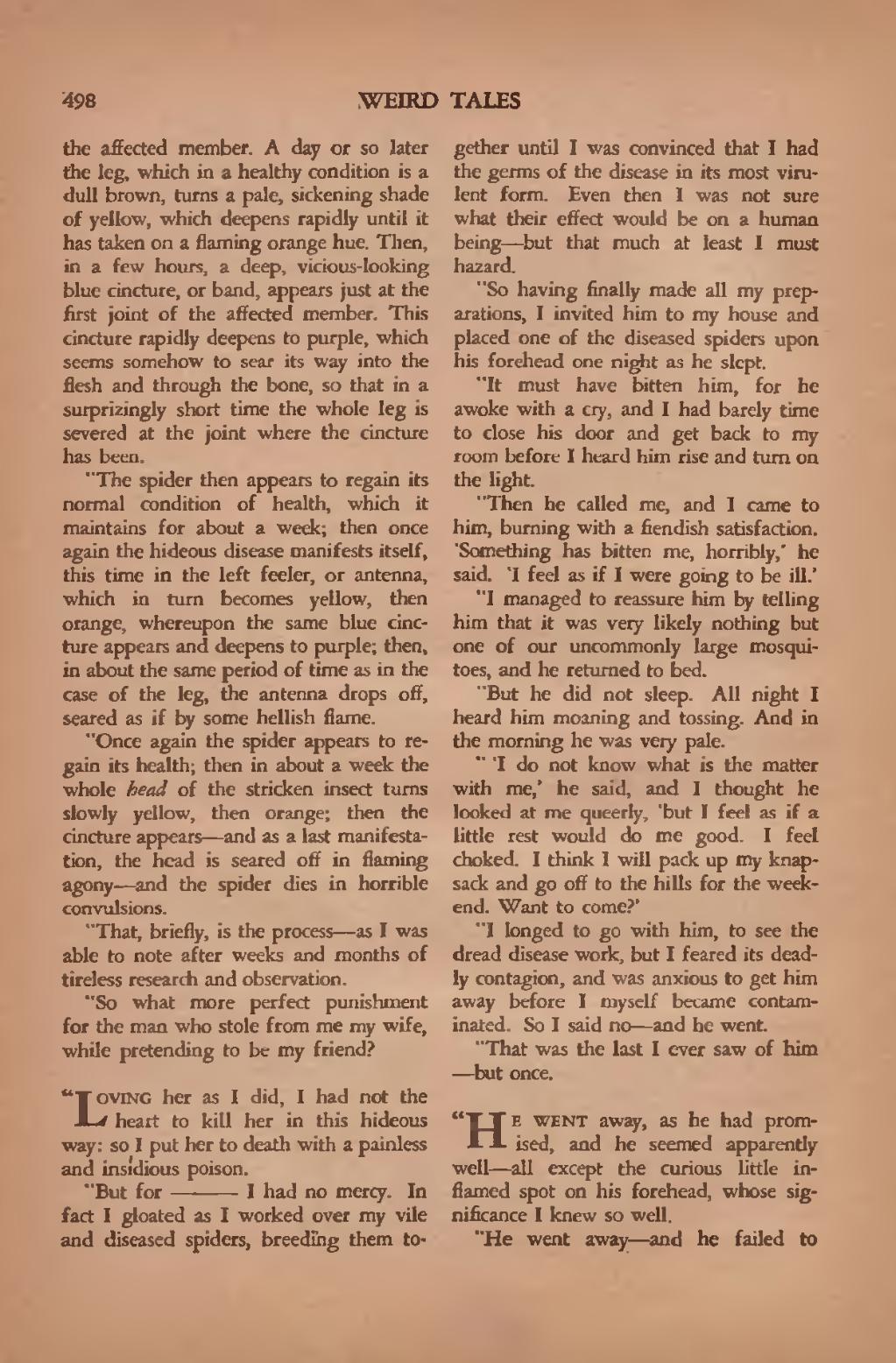the affected member. A day or so later the leg, which in a healthy condition is a dull brown, turns a pale, sickening shade of yellow, which deepens rapidly until it has taken on a flaming orange hue. Then, in a few hours, a deep, vicious-looking blue cincture, or band, appears just at the first joint of the affected member. This cincture rapidly deepens to purple, which seems somehow to sear its way into the flesh and through the bone, so that in a surprizingly short time the whole leg is severed at the joint where the cincture has been.
"The spider then appears to regain its normal condition of health, which it maintains for about a week; then once again the hideous disease manifests itself, this time in the left feeler, or antenna, which in turn becomes yellow, then orange, whereupon the same blue cincture appears and deepens to purple; then, in about the same period of time as in the case of the leg, the antenna drops off, seared as if by some hellish flame.
"Once again the spider appears to regain its health; then in about a week the whole head of the stricken insect turns slowly yellow, then orange; then the cincture appears—and as a last manifestation, the head is seared off in flaming agony—and the spider dies in horrible convulsions.
"That, briefly, is the process—as I was able to note after weeks and months of tireless research and observation. "So what more perfect punishment for the man who stole from me my wife, while pretending to be my friend?
"Loving her as I did, I had not the heart to kill her in this hideous way: so I put her to death with a painless and insidious poison.
"But for ——— I had no mercy. In fact I gloated as I worked over my vile and diseased spiders, breeding them to- gether until I was convinced that I had the germs of the disease in its most viru- lent form. Even then I was not sure what their effect would be on a human being — but that much at least I must hazard.
"So having finally made all my preparations, I invited him to my house and placed one of the diseased spiders upon his forehead one night as he slept.
"It must have bitten him, for he awoke with a cry, and I had barely time to close his door and get back to my room before I heard him rise and turn on the light.
"Then he called me, and I came to him, burning with a fiendish satisfaction. 'Something has bitten me, horribly,' he said. 'I feel as if I were going to be ill.'
"I managed to reassure him by telling him that it was very likely nothing but one of our uncommonly large mosquitoes, and he returned to bed.
"But he did not sleep. All night I heard him moaning and tossing. And in the morning he was very pale.
"'I do not know what is the matter with me,' he said, and I thought he looked at me queerly, 'but I feel as if a little rest would do me good. I feel choked. I think I will pack up my knapsack and go off to the hills for the weekend. Want to come?'
"I longed to go with him, to see the dread disease work, but I feared its deadly contagion, and was anxious to get him away before I myself became contaminated. So I said no—and he went. "That was the last I ever saw of him —but once.
"He went away, as he had promised, and he seemed apparently well—all except the curious little inflamed spot on his forehead, whose significance I knew so well.
"He went away—and he failed to
